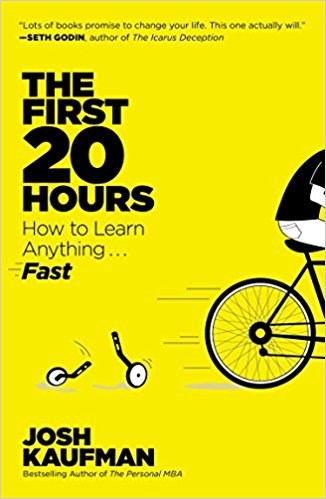September seems like a perfect time to learn something new, even if you are not a student heading back to school.
Not all study hours are created equally, though. To make sure we spend our time and effort efficiently and effectively, check out what the experts have discovered about learning in these great reads.
Mindset: The New Psychology of Success by Carol Dweck is a great place to start. Do you believe your intelligence, talents and personality are predetermined, or do you think you can develop them? Dweck shows us how our fixed mindset (the former) or our growth mindset (the latter) can influence our attitude towards learning, how our mindset has a profound impact on our everyday lives and shape our responses to things such as a challenge or a setback. Fortunately, our mindsets can be changed. We can move more towards a growth mindset that focuses on the word “yet” — i.e., “I don’t know how to do this yet but I can learn.”
As we develop and strengthen our growth mindset, let’s delve into the fascinating world of the psychology of learning to figure out how our brain likes to learn. In his book How We Learn: The Surprising Truth about When, Where and Why it Happens, Benedict Carey dissects common misconceptions about learning techniques and uses lots of intriguing scientific studies to show us how to establish better study habits. Should we study intensely for three hours or should we do one hour each for three days? What’s better: doing 10 multiplication problems in a row to master the concept or mixing it up with some division problems? For those of you who love to sleep in, you may like some of the research he shares to back up why you should stay in bed for just another hour — in the name of learning.
Looking to gain more insights on how your brain works? Another great book about learning is A Mind for Numbers: How to Excel in Math and Science (Even if You Flunked Algebra) by Barbara Oakley. Don’t let the title dissuade you because Oakley makes cognitive science approachable and fun, and the study techniques she shares in her book are applicable to all kinds of subjects, not just math and science. Incidentally, Oakley is also the co-instructor of one of the most popular MOOC (massive open online course), aptly named Learning How to Learn. With Carey and Oakley as your guides, you will be well prepared to tackle your next learning project.
What if you are not trying to learn a traditional school subject but would like to acquire a new skill? Do you really need 10,000 hours of practice? Josh Kaufman says No. His book The First 20 Hours shows us an alternative perspective and gives us a roadmap to rapidly learn a skill and make massive progress in a short time. He tested his system on himself and you can read all about how he learned yoga, ukulele, web programming and more in this book.
As many of these authors pointed out, knowing is not the same as doing. Now that you have got all the inside scoop on how your brain likes to learn, it’s time to make use of these tips and tricks to go learn something.
Looking for ideas? Visit your local library and see all the in-library and online learning tools and courses they offer. Happy learning.
A Good Read is a column by Tri-City librarians that is published on Wednesdays. Virginia McCreedy works at Port Moody Public Library



